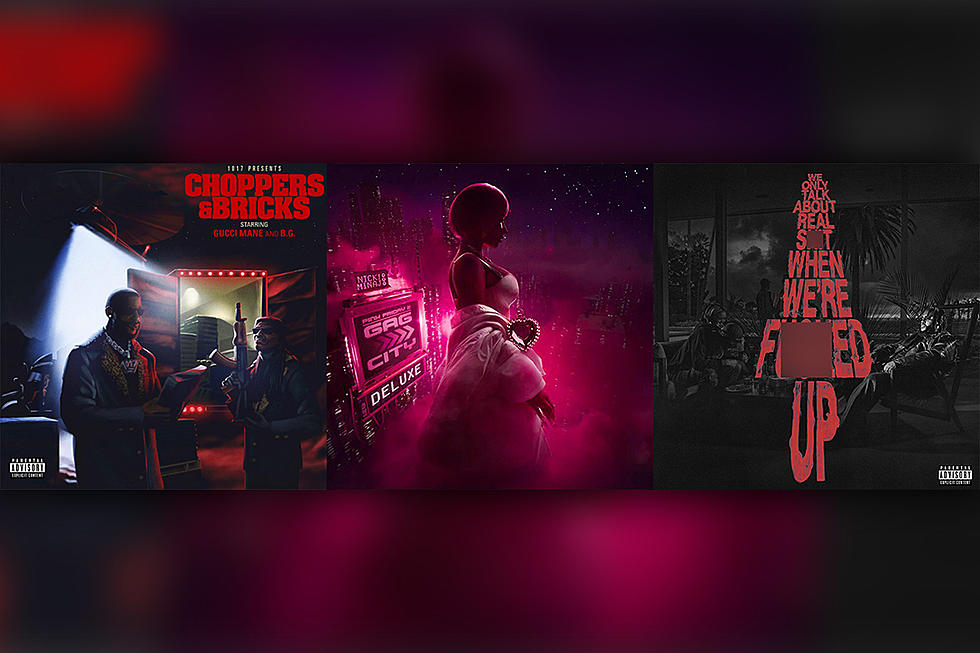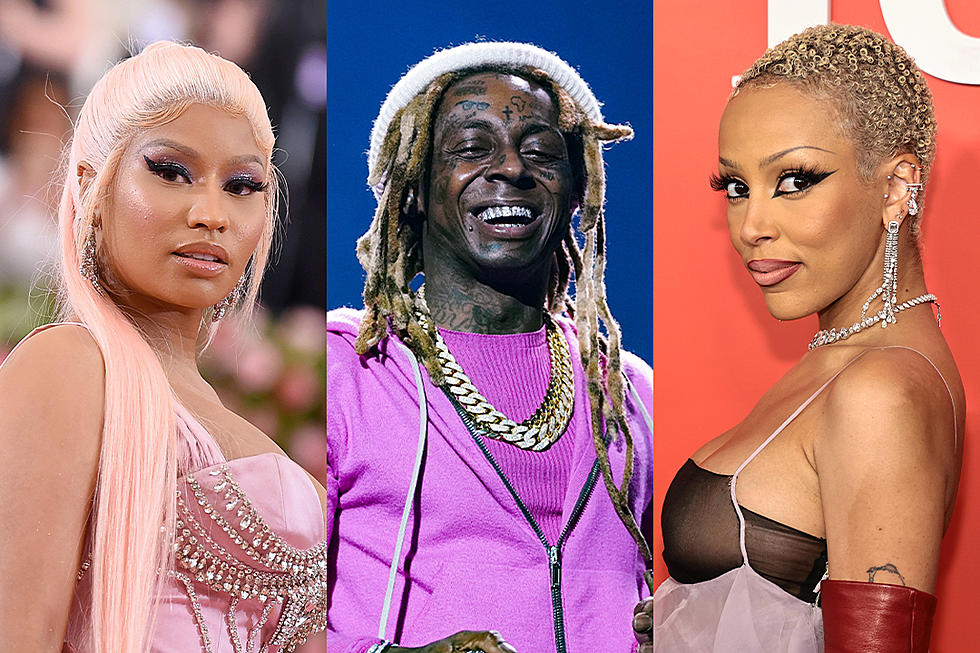
Bas Brings Emotion and Depth to ‘Too High to Riot’
As money and fame brings new experiences -- positive or negative -- to a rapper's life, the newfound knowledge gained from each moment should be portrayed in their music. The best storytellers do this well so fans can seemingly ride shotgun to experience the ups and downs right along with them. Dreamville artist Bas' sophomore project, Too High to Riot, does just that by sharing some of the drawbacks of being a rap star while delivering solid rhymes.
Coming off his 2014 effort, Last Winter, in which Bas showcased his ability to pen catchy tracks (“Fiji Water in My Iron,” “Lit” and "My Ni***a Made Bail”) and remain lyrical, he looks to detail some of the misfortunes of being a rapper on his sophomore project. Here, the thickly bearded MC adds to his rhyme-slinging status by penning emotional, infectious bangers while keeping it lyrical -- the mark of a true MC. And with Bas consistently coming with heat, it makes one wonder why he's rarely mentioned among top leaders of the new school artists in New York City for his organic flow and mature content.
The 12-track album finds the self-proclaimed Fiend effortlessly touching on drug abuse, the death of family members and racial issues in America. Too High to Riot commences with the memorable title track. Bas goes in over the Ron Gilmore production, replete with drums and a piano-laden backdrop, by dropping bars about the racial divide and suggesting that he doesn't want to blow his high by rioting to bring attention to these ills. While Bas isn’t as political as some of his hip-hop contemporaries, with songs like “Too High to Riot” he validates that he’s far from shallow and social ills weigh heavy on his mind. And being that he runs with the all-American nice guy and socially aware J.Cole, Bas' own socially conscious side should come as no surprise.
The Queens, N.Y.-based, Paris-born spitter keeps the momentum going on the Subdaio-produced “Black Owned Businesses.” Accompanied by dreamy synths, Fiend Bassy raps about Black fathers either being dead or in jail and crooked cops making the lives of Black males very uncomfortable. This song recalls the vibe of "Attica," off his Quarter Water Raised Me II project, due to its similar content.
Switching gears a bit, the former Hampton University pharmacy student uses one of the many standout tracks, “Methylone,” to tell the story of how he once bought a drug testing kit to test a pill that he thought was molly. However, it turned out that the pill was actually Methylone. Bas then cleverly uses this story as a metaphor to expose the fake homies in his circle, wishing there was a testing kit to validate their realness.
But its the somber tracks “Dopamine,” with labelmate Cozz and “Live For,” that features Bas letting his emotions fly. He discusses sick family members, losing his aunt to cancer and the drawbacks of being an artist too absorbed in his work -- missing important family gatherings, his mother wishing her son was home and not being there when family needs him the most. It’s stories like these dipped in Bas' distinctive wordplay that give listeners a reminder that he should be included in the conversation as one of the East Coast's best spitters.
With singles “Night Job,” where he holds his own against J.Cole, and “Housewives,” it's just further validation that Bas can go toe-to-toe with heavyweights and hold his own on memorable solo tracks.
There's not much criticism for Too High to Riot. While Bas doesn't have jaw-dropping metaphors, he also doesn't follow trends nor reach for sounds outside of his usual demeanor. The rapper is able to switch up his content while staying true to his craft. And he's able to let fans experience the downsides of his life without sounding like he's throwing a pity party for himself. By exposing his drawbacks Bas' fanbase gets to mature through his music.
See 40 Hip-Hop Albums Turning 20 in 2016
More From XXL









